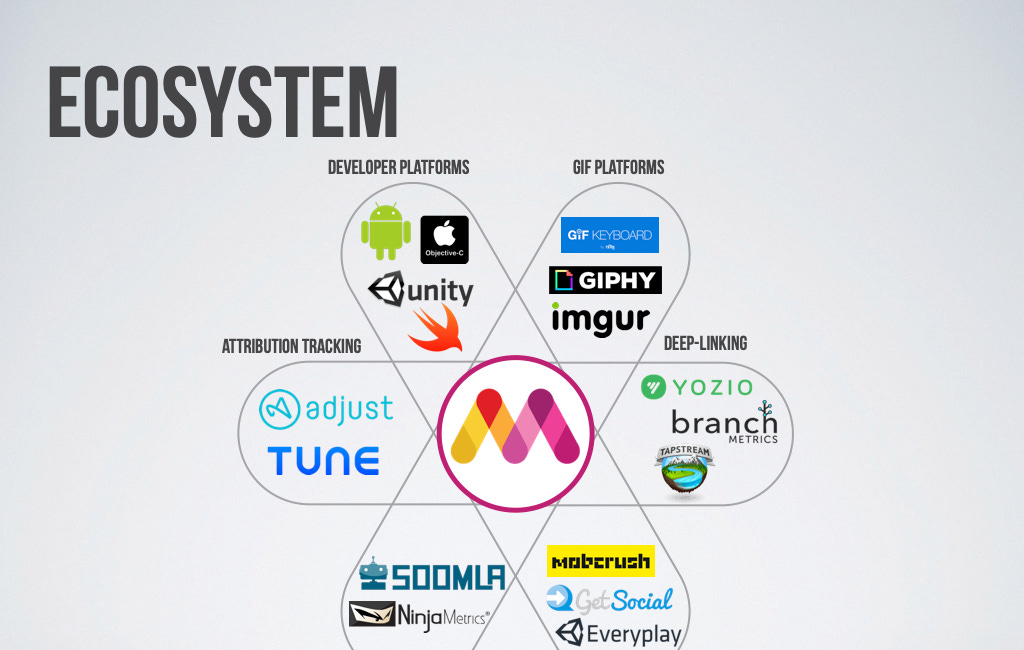First time fundraising: What I wish I knew then
I'm bringing you into my raw and vulnerable experience fundraising for the first time.
I had just emptied both our business and my personal accounts, and our potential VC lead wrote to tell us that they wouldn't be able to invest until the summer—at best. They believed we had enough funds to reach our next milestone.
It was May 11, 2016. We'd tried and failed at raising our desired $1.5m SAFE1, aiming for an 18-month runway to solve the enormous problem mobile game companies faced: how to cost-effectively scale their user base.2
I couldn't sleep through the night. To top it off, my lips decided to pull a stunt straight out of a sitcom on disastrous lip injections—a condition attributed by a doctor to a combination of sunburn and intense stress. All the worst-case scenarios were taking up unnecessary space in my head, such as being financially forced to give up and leave this founder journey behind, flying back home to family and friends, and … a financially stable job in management consulting3.
Our starving bank accounts wouldn't fill themselves. We needed to pay our rent and cover our soaring server costs. I didn't know how to tell the VC that we desperately needed their money now without scaring them away with our desperation.
Feeling the last drop of energy in that moment, I opened my laptop to pour my heart (and head) onto the screen to reflect on:
What I wish I would have done differently when fundraising for the first time.
The below is based on what I wrote then.
I wish we had built investor relationships from the start.
When we pitched our dream investor in January 2016 at our first real investor meeting, we thought we'd only need to do that one, and money would follow. They had expressed interest in investing in us earlier in the fall, so we casually showed up to the meeting and demoed our product, talked about our case and current traction, and thought we wouldn't need to spend valuable time synthesizing our "pitch" into a deck. We thought it was fine to not have all the answers. After all, they invest in the team, and we would figure the rest out. Safe to say, we left the meeting feeling like someone had pulled down our pants in front of the whole school.
We had completely overlooked the importance of establishing and nurturing relationships with investors before formally launching our fundraising efforts. Naively, we assumed that our merits and product traction would effortlessly attract top gaming VCs.
We later realized that most investors base their judgments on that one crucial pitch meeting when you're actively fundraising. Unless a startup's metrics scream, 'THIS IS THE NEXT FACEBOOK,' during fundraising pitches, VCs typically will allocate up to one meeting of their valuable time.
In hindsight, we should have focused on meeting with and nurturing relationships with investors over time, starting before our fundraising kicked off, bringing them in on our journey to observe the slope of our trajectory instead of a single point in time.
I wish we had started asking investors what they needed to see from us to invest.
This is similar to the common startup lore: "Ask for advice, get money. Ask for money, get advice".
In addition to having early conversations with investors, we should have spent them asking for strategy and product feedback and started pitching them once we'd addressed any concerns.
Instead, we went for a kiss on the first date by asking for money instead of advice.
Bringing investors along the startup journey would make them—hopefully—buy in on our mission and make them more eager to join our round once we were ready.
Instead, we received all sorts of hard feedback, which we should have been able to address better from the start:
we don't see how this can become a big business;
we don't invest in the gaming space/you're too early;
receiving messages from friends with game promotion feels intrusive;
this seems like something a gaming company could build themselves.
By being able to confidently address critical concerns, we would have been in better shape from day 1 of kicking off our fundraising.
I wish we had separated ourselves from the crowd by emphasizing our smartness and scrappiness through storytelling.
Early investors say they invest in the team. So why didn't we talk more about us? Don't get me wrong, we did share our background and why we were the best to solve the problem we were solving.
But we didn't get deep into who we are, how we do things, and why we're different.
We should have enriched our pitch to include how we have been working without pay for the past year, moved to San Francisco from Norway, prototyped ten concepts before choosing the best one, and endured challenging living arrangements resembling a real-life Tetris game of mattresses, rotating chores like cooking, baking, and laundry every Sunday—all in the name of bootstrapping. We should also have written about our quirky team and ways of operating to spread the word outside our immediate network to create inbound opportunities. Better late than never!
Talking and writing about us as a team would have helped us stand out like musicians trying to make our unique melody heard in a noisy concert hall.
I wish we understood how to structure the fundraising to create FOMO.
We were a pre-revenue B2B startup, and the market had shifted the definition of "early stage" from the Seed to Series A fundraising round4. We naively pitched "early stage" investors, thinking they were—in fact—investing early. Instead, the main feedback we received was that we were too early and needed more traction and revenue, and "let's talk when you're raising your A round."
There was also some pushback on the SAFE note as some investors didn't like it anymore or wanted a discount5. We had initially decided not to do a discount given that other companies we've talked to didn't have it. In hindsight, we should have used the discount to incentivize the first investors to step up to the podium and sign us the first check.
Alternatively, we could have aimed for raising a lower round, such as $750k or $1M at a specific cap. Once we'd reached it, we could raise more on a new cap and create FOMO with an oversubscribed round.
I wish we focused on fundraising from angels and not VCs first.
In retrospect, we should have built relationships with gaming and ad tech angels first, convinced them to put in money, given us enough to prove our hypotheses, and then pitched the VCs with warm testimonials and robust metrics. Instead, we wasted time talking to the wrong "early-stage" VCs.
"As I sit here, with starving bank accounts, reflecting on everything I wished I had done differently…All I want is to completely stop focusing on fundraising and instead spend valuable time talking to customers and moving the product forward. Fundraising takes too much time. We've been at it from January through May and met with over 50 investors. I know it's a numbers game, but still—it feels so counter intuitive!
It's like a chicken and egg problem: we don't have time to build the traction investors are asking for because we're fundraising.
We need time to find someone who believes in our vision of the future, the problem we are trying to solve, and—most importantly— believes we are the right people to do so.
Is it too late to start over?" — Reflection note from May 11, 2016
Today, in an extremely challenging 2023 fundraising climate, I'm so glad I have the retrospective above to look back on. While it was raw and fresh, I did it to empty my head. Thankfully, I can revisit it today and share what was on my mind during the darkest hours with other struggling entrepreneurs.
"Honestly, this is so similar to my own thought process and just makes me feel so much more... normal. (...) Just reading this has made this experience a lot less lonely."
— An email from a fundraising founder reading my 2016 retrospective on "What I wish I would have done differently when fundraising for the first time".
Can you hear me? You're not alone!
If you're an aspiring entrepreneur going for VC scale, start building relationships with angels and VCs today, even if you're long into your journey. Get to know them. Get them to know you, what you're working on, why, and what makes you unique.
And most importantly, ask them: "What do you need to see for this to be an attractive investment opportunity for you?"
Then get to work, keep them posted on progress, and close the deal once you've reached what they need to see!
While you might say that it's "too late" to do that now, I'm telling you that it will always feel too late. But life has a funny way of finding more time for the right and important things. So start today!
As for us? Stay tuned to learn about the events that turned things around at the eleventh hour:
Our Roller Coaster $1.6m Seed Fundraise
In the world of startups, success stories often take the form of triumphant headlines, celebrating multi-million-dollar fundraising rounds and subsequent popped champagne. These stories make it all seem straightf…
A huge thank you to everyone who took time out of their day to provide feedback on this piece and helping it get better: , , , , , , , and 🙏
A "Simple Agreement for Future Equity" (SAFE) is a legal contract used in early-stage startup financing, allowing investors to provide capital in exchange for the promise of future equity when a priced round of funding occurs.
If you're curious about the solution, go to megacool.co
What all my peers from university were doing despite having an MSc in engineering. Throughout our founder journey, we always said: "Well, if this fails, we can always go back home and join our friends in management consulting.”
Seed funding is the initial capital injection provided to a startup to help it get off the ground. It typically supports product development, market research, and initial business operations. Today, there are also “Pre Seed” rounds, even earlier than Seed.
Series A is the first significant round of financing that startups undertake after the Seed stage. It helps companies expand their operations and scale their business. B2B usually has substantial revenue numbers indicating produce market fit and needs financing to scale.
Discount: The SAFE discount is a term in a SAFE that specifies a percentage reduction in the price per share investors will pay when the startup's next priced equity round occurs.






Awesome Aurora! Love how this shaped up. So good :)
Celebrate this one !
...reminder i need to ask you more about this in person sometime sooner than later...where to start being my first question...great read!...